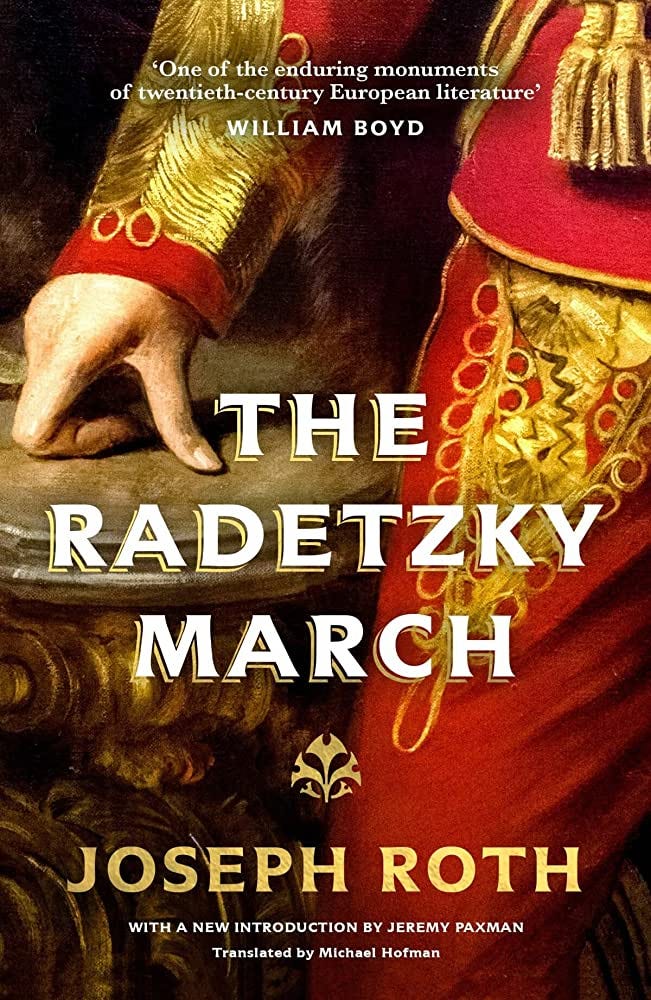Culture Club: Beef Broth with Joseph Roth
A new feature where Talia and David discuss what they've been reading, watching and listening to, for paid subscribers
Welcome to Culture Club, a new weekly feature where David and I (and sometimes both of us!) talk about what we’re reading, watching, and listening to each week. This feature is for paid subscribers only, but enjoy this free preview, and subscribe for the full post and more!
This week, I’ve been reading The Radetzky March, Joseph Roth’s famous and magisterial account of three generations of an Austro-Hungarian military family. Needless to say, this is connected to my whole festering World War I obsession (or what my family refers to as “Talia’s World War I thing”), but Roth’s novel speaks to one of the elements of the war that keeps drawing me back in, long after I would have abandoned another historical rabbit hole (adieu, the English Civil War, I hardly knew ye).
As few other historical events do, World War I forces one to encounter the sheer interconnectedness of all things, the fraying links between the past and the present, the way geography and chance and ethnicity and religion and language all contribute to catastrophe and its aftermath. It is an event that begins long before it begins; so it’s fitting that Roth’s novel starts in 1859, at the Battle of Solferino, part of the Second Italian War of Independence – and the last battle in world history in which all the armies on the field were under the personal command of their monarchs. It’s there that the Trotta family are ennobled through an act of battlefield heroics; we will follow three generations of the family until the First World War.
In Roth’s vivid description of the Austro-Hungarian elite – its pathologies, its rigidities, and the minute details of the lives of the repressed von Trotta men – Roth fleshes out the entirety of a vanished world, one that the war tore apart entirely. It was a reshaping of the world order that Roth himself, born in Austro-Hungarian Galicia in 1894, felt keenly; writing the novel in 1932, the ache for all that was familiar and lost coursed through him onto the page. All in all, I haven’t encountered something this suffused with melancholy since the last time I ate a hot dog at a 7/11.
This is somewhat at odds with the novel’s namesake musical piece,
Keep reading with a 7-day free trial
Subscribe to The Sword and the Sandwich to keep reading this post and get 7 days of free access to the full post archives.





